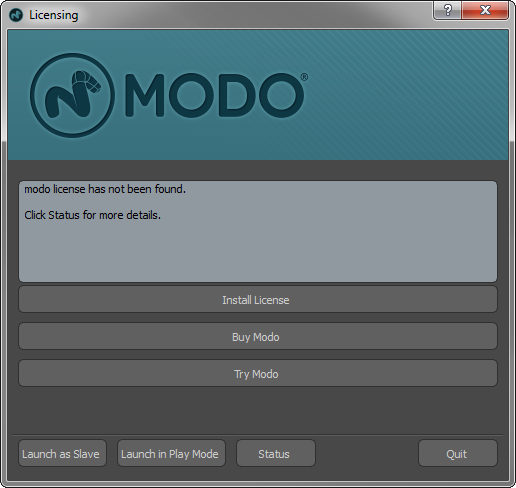
To launch the application on Windows, do one of the following:
• Double-click the Modo 901 icon on the Desktop.
• Select Modo 901 from Start > All Programs > Luxology > modo > 901 > Modo 901.
• Using a command prompt, navigate to the Modo application directory (by default, \Program Files\Luxology\modo\901) and enter modo.exe to launch Modo.
If you already have a valid license, the graphical interface appears, and a command line window opens. If you don't have a license or haven't installed one yet, the Licensing dialog appears on start up.

For more information on how to license Modo, refer to Licensing Modo on Windows.
Slave mode is related to network rendering and places Modo in a state where other Modo installations can control its renderer. For information on how to set up Network Rendering, please reference the Network Rendering page.
Play mode places Modo in a special state where it acts as a scene viewer. In this state the interfaces are mostly disabled, but it allows you to load scenes and render and save them, both in Preview and using F9; opening the Render Display window.
One unique function of Play mode is its ability to detect scene changes and auto-reload the scene. What this means is any scene opened from over a network and previewed, when updated on another system, saves files to the scene file, reloads the scene on the networked system and updates the preview viewport. This allows the secondary system to act as a dedicated preview system without the need for a second license.